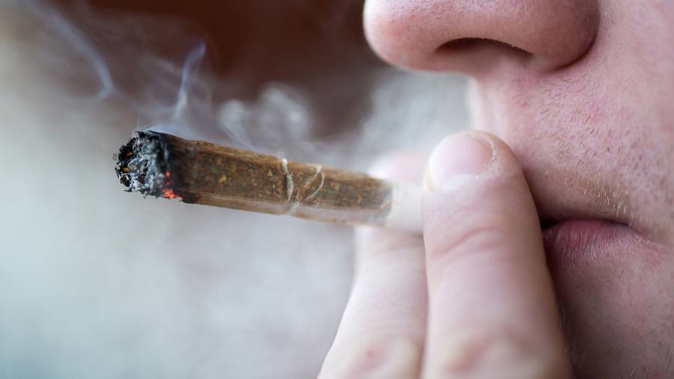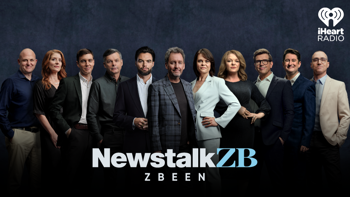
Another referendum on cannabis is being proposed - this time to decriminalise, but not legalise, the drug.
A public notice in today's Herald gives notice that a citizen-initiated referendum has been proposed asking: "Should New Zealand decriminalise the possession of cannabis for personal use?"
The proposal, lodged by Wellington Central Young Greens activist Mathew Bouma, is open for comments on the proposed wording until February 1.
House of Representatives Clerk David Wilson and Bouma must then agree on a final wording, and the issue will go to a referendum if Bouma can collect valid signatures from at least one-tenth of the country's 3.55 million electors - 355,000 people - within 12 months.
The initiative comes just six weeks after a narrow majority of 50.7 per cent of New Zealanders voted against legalising cannabis.
/cloudfront-ap-southeast-2.images.arcpublishing.com/nzme/C64KVWUPMX7JMVBZQ66RP5645Q.jpg?width=710&height=411&mode=max)
Mathew Bouma, 20, has proposed a citizen-initiated referendum to decriminalise cannabis. Photo / Supplied
Bouma, 20, said he believed many people voted against legalising the drug because it would have created a commercial market for big businesses, but that did not mean voters wanted cannabis users to be fined or jailed.
"I don't think people support people being convicted for minor offences, but legalisation was a step too far," he said.
"Decriminalisation would mean that if you are caught with a small quantity of cannabis you wouldn't be convicted, you couldn't go to jail.
"But legalisation opens it up to commercialisation, big business, lots of money. I think that was a concern for a lot of people."
Bouma, the NZ-born son of a Dutch immigrant, is a software developer and said his involvement in the Green Party was "only in a volunteer capacity".
He has not yet discussed the proposed referendum with Green Party drug reform spokesperson Chloe Swarbrick or any other MP.
"I haven't had that conversation yet. It's very fresh, it's kind of just getting started," he said.
"Mainly it's just a personal initiative. I was just chatting with some friends. After the results of the referendum, we were seeing comments from the Government around decriminalisation."
The Government has already changed the law last year to give police discretion on whether to prosecute people for possessing illegal drugs, stating that "prosecution should not be brought unless it is required in the public interest".
The law now says: "When considering whether a prosecution is required in the public interest, in addition to any other relevant matters, consideration should be given to whether a health-centred or therapeutic approach would be more beneficial to the public interest."
But analysis by Herald political reporter Derek Cheng has found that only 10.7 per cent of offenders where drug possession was the most serious offence were given a health referral in the first 10 and a half months after the law was changed.
The proportion of people being prosecuted dropped from a third of drug users to a quarter, with the rest given warnings or alternative resolutions. In real terms, that amounted to 1200 people being charged since the law change, or about 114 people a month.
Former Justice Minister Andrew Little said he wanted prosecutions to drop to "zero or thereabouts". But he also said that completely removing the criminal offence of possessing illegal drugs "would disrespect the referendum result".
The Salvation Army, which campaigned against legalising cannabis, called after the referendum for decriminalising casual use of cannabis and increased funding for drug addiction treatment.
"The Salvation Army is in support of a form of decriminalisation of cannabis, particularly a shift away from society's response of punishment to a more compassionate health response when cannabis possession is deemed to be for personal use," the Army said.
"The Army does, however, advocate for strict legal prohibition to be enforced for those producing and supplying cannabis.
"Cannabis is not the benign substance that many people would have us believe. Cannabis can have significantly harmful effects related to addiction, mental illness and motivation and we see this in our addiction treatment services."
New Justice Minister Kris Faafoi said the Government "is not currently looking at the question of decriminalising the use or possession of cannabis".
Citizen-initiated referendums are not binding on the Government. There have been 48 petitions to hold referendums since the process was set up in 1993. Five gained enough signatures to hold a vote, but successive governments ignored all of them.
Citizen-initiated referendums
1995: Maintaining the number of professional firefighters - 88 per cent support.
1999: Reducing the number of MPs from 120 to 99 - 82 per cent support.
1999: Imposing minimum sentences and hard labour for all serious violent offences - 92 per cent support.
2009: Should a smack as part of good parental correction be a criminal offence? - 87 per cent against.
2013: Selling up to 49 per cent of Air NZ, Genesis, Meridian, Mighty River Power and Solid Energy - 67 per cent against.
Take your Radio, Podcasts and Music with you









